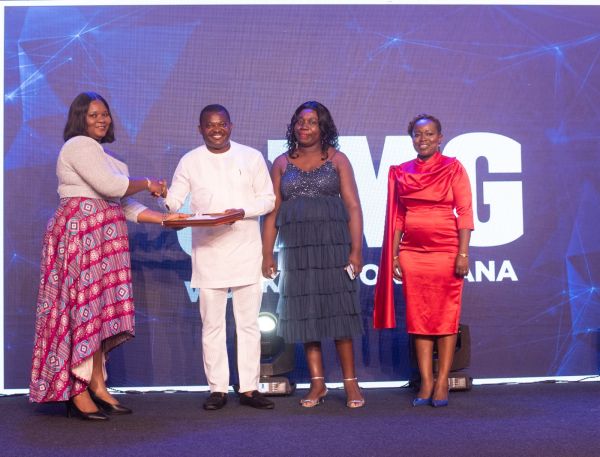
South Africa is training a group of teachers to learn how to code and how to teach coding. The subject will be piloted at 1000 schools across five provinces, starting in the 2020 academic year. The announcement has resulted in debates around the country’s ability to deliver on such a commitment, particularly when considering the low literacy and numeracy skills of learners. The Conversation’s Nontobeko Mtshali spoke to Professor Ulrike Rivett to find out more about this.
What is coding? Are there African countries teaching it nationally at school level?
The Department of Basic Education describes coding as the writing of instructions for computation using a programming language to achieve a specific goal or to solve a problem. In simple terms, coding refers to using a language that a computer understands to develop computer programmes, mobile applications, websites etc.
Coding is therefore similar to introducing a new language in the school curriculum. The misconception has often been created that coding requires a talent in maths or physics, but that’s not necessarily the case. Coding, similar to any language we use, has certain structures and rules – like grammar – and these rules have to be learnt and practised. While the discussion around coding has been very closely linked to that of the maths curriculum, there is no reason to believe that students with subjects such as maths literacy cannot learn how to code. The challenges of introducing coding as a subject are manifold, but maths education is not one of them.
Get news that’s free, independent and based on evidence.
Get newsletter
There are a number of schools that have already introduced coding. Most are well-equipped schools or private institutions. This is also true for most African countries.
Countries like the UK have well-established national policies. In the UK this was done in 2013. Others that followed included Austria, Bulgaria, the Czech Republic, Denmark, Estonia, France, Hungary, Ireland, Lithuania, Malta, Spain, Poland, Portugal and Slovakia. Some of these countries have included coding in their national curricula.
What are the challenges in the way of making this a regular subject in schools?
It’s great that South Africa has decided to roll out coding nationally. But the complexity is that the foundations are not in place for effective implementation. Dr Mmaki Jantjies, a senior lecturer at the University of the Western Cape’s Department of Information Systems, cites five core elements that need to be in place for effective rollout. These include:
- infrastructure,
- teacher training and support,
- localised learning content,
- technical support, and
- safety and security.
To provide a good foundation in digital skills, computers have to be available on the school premises together with the relevant IT infrastructure and internet connectivity. This translates effectively into having an IT department at the school that can manage the equipment, keep it up and running and be able to support teachers and learners when problems arise. This requirement translates directly into a cost factor that is not a once-off investment, but rather a regular addition to the annual budget in the form of a recurrent cost item.
The second challenge involves teachers and a curriculum. Teacher training is expensive and currently teachers don’t learn how to code. To develop an integrated and sustainable curriculum, it will be essential to reflect on the current requirements for teachers, and to understand how they are trained.
Another challenge of making coding and robotics a regular subject at school is time. In an already crowded timetable, which subject do we remove or allocate less time to? Do learners have to spend more time at school? In the UK, a solution was found by integrating digital skills into other subjects.
In South Africa coding and robotics will be introduced through the existing technology subject taught until Grade 9, or through a new subject called “digital skills”.
The curriculum is expected to provide learners with the necessary knowledge and skills to become “inventors of new technologies to make a valuable contribution towards the global community”.
What are the risks if school children don’t attain this skill at the basic education level?
The need for coding is becoming ubiquitous. In the same way that employees are currently expected to have the ability to read, write and count, in the near future there will be an expectation to have the literacy of coding. This will allow learners to harness the power of computers.
Right now, the most sought after careers are in the IT space. From the retail sector to financial institutions, our world is becoming digital. Online shopping, online banking, online TV watching – the risk of not being able to attain the skill of coding will be a risk of not attaining a job.
What needs to be done going forward?
Throwing equipment such as tablets or laptops at schools without addressing the training of teachers hasn’t resulted in any sustainable solutions on the continent.
An opportunity that should be more widely investigated is the engagement of universities in the initiative. Many of the computer labs of higher education institutions are empty for 26 weeks of the year. We took the opportunity to link up with CodeSpace during the June vacation to host a coding camp for high school learners on UCT campus – the labs were filled with excitement in an otherwise deadly quiet time and it gave us insight on the potential of using our resources to fill a real need.
With the experience of hindsight, South Africans know that curriculum changes have not always been as successful as had been hoped and that a radical change – such as making coding and robotics a school subject – might be too much for some schools. Will the country end up with another subject that creates “have and have-nots”?
This is an opportunity to engage, to grapple with a difficult challenge and for higher education institutions to draw alongside the Department of Education, our schools, teachers and learners. This might be the one time where the lofty heights of academia can provide some insight and practical space to introduce a subject that will provide our children with a skill for future success.








